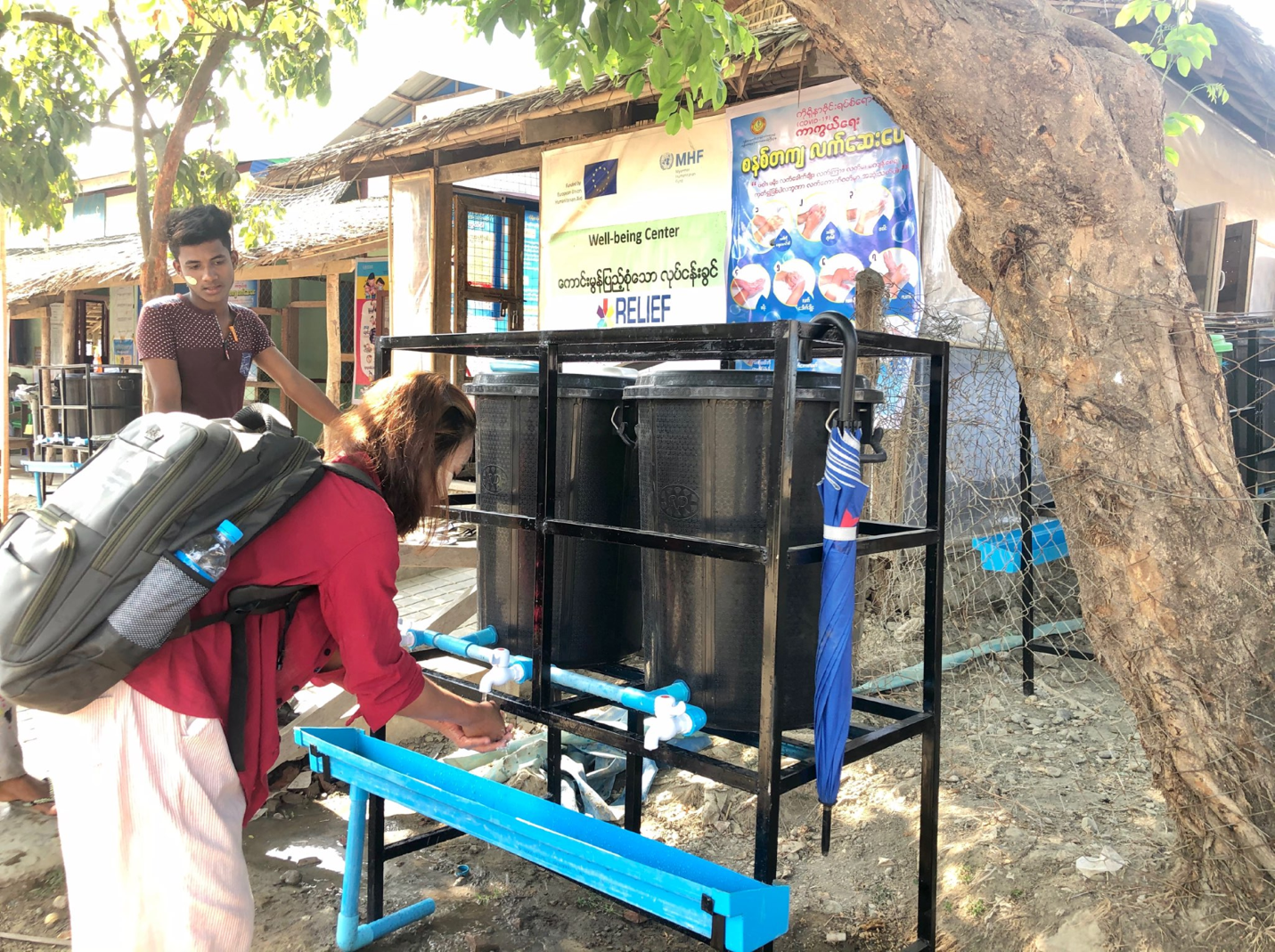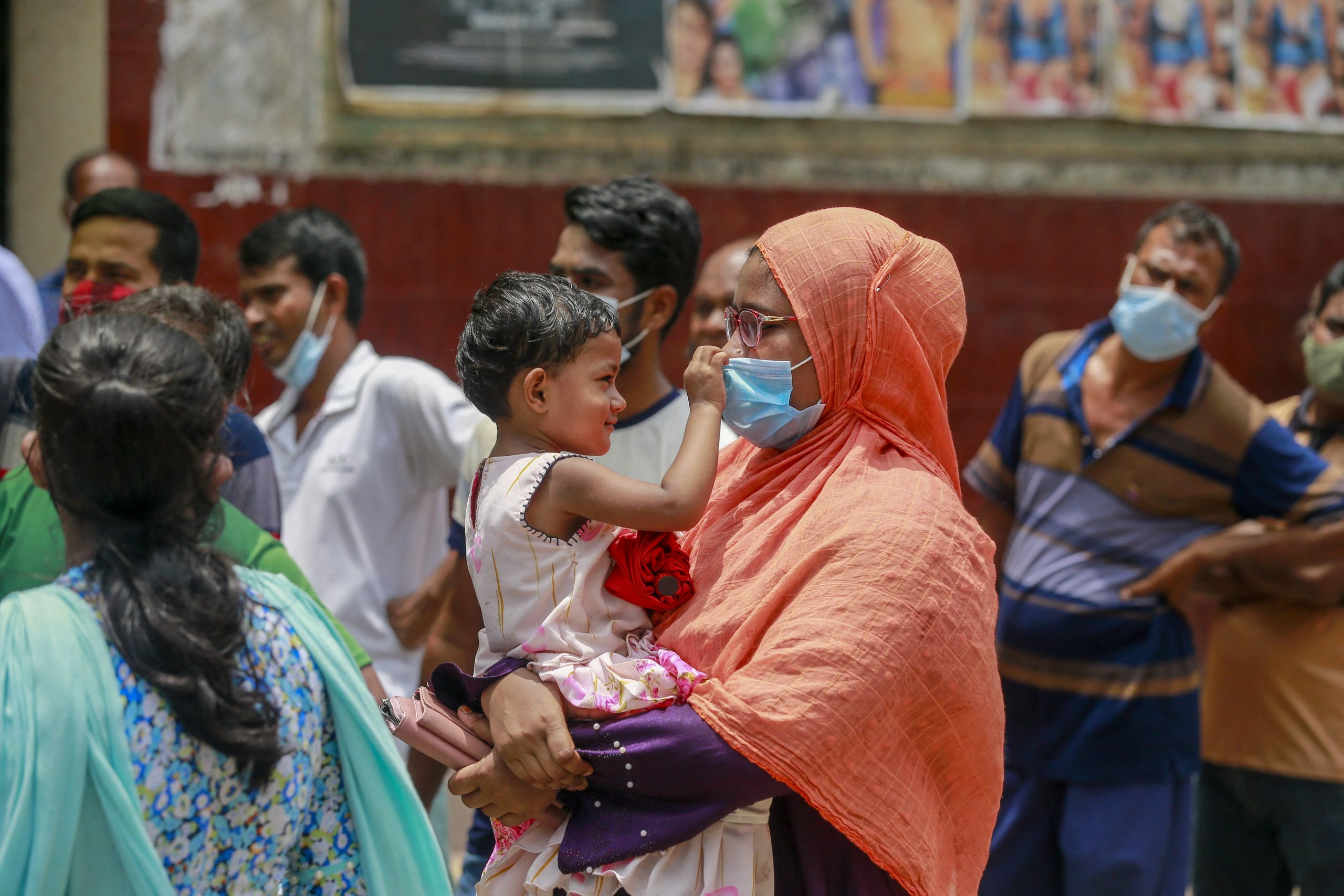In 2020, a year like no other, Relief International provided vital services to prevent the spread of COVID-19 and to treat those affected by it, in fragile settings around the world. In excerpts taken from our Annual Report, learn more about how Relief International was able to respond to the pandemic in diverse and different locations.
As global leaders and influencers the world over encouraged people to wash their hands after COVID-19 broke out in March 2020, over nine million people in Myanmar continued to live without clean water access, particularly poor people in rural and remote areas.
In areas like conflict-affected Rakhine state, where Relief International was already well established working to improve healthcare and livelihood opportunities, our teams set to work alongside the local authorities to establish 241 handwashing stations in prominent townships across the state. “Handwashing is one of the most effective ways to stop the disease spreading, along with other measures. It’s a simple intervention yet, without access to clean water and soap, it’s impossible.” Kyaw Myo Than, RI Water, Sanitation & Hygiene Officer.
For many Myanmarese like Hla*, the handwashing stations provided both hygiene and reassurance;
“I was worrying about touching food at the market. Now I feel better as I can wash my hands straight after I buy food for my family. I feel clean and safer.”
We also provided key health messages on prevention and protection, sourced and distributed Personal Protective Equipment, and disinfected popular public areas to help prevent the spread of the disease. In Sitwwe, the capital city of Rakhine state, Relief International set up five COVID-19 screening checkpoints, where we also distributed leaflets and posters about how to prevent the spread of infection, how to recognize symptoms, and what to do if symptomatic.
While case numbers initially remained relatively stable, a major second wave in August saw numbers increasing from 10 to 1,000 a day, overwhelming the already fragile health system in the country. In response to this peak in cases our teams set up a 100-bed COVID-19 quarantine center in the capital of Mrauk U Township in the North of Rakhine state, repairing an existing building and fitting it out with the tools and resources needed to treat patients. This safe space for people to stay after exposure to the disease was equipped with bedding and personal items such as soap, toothbrushes and other hygiene items. From here, our staff were able to continue promoting disease prevention and hygiene best practice, while also triaging any patients who became symptomatic to nearby hospitals.
At the end of 2020 our teams provided over 75,000 health consultations and helped give 5,500 people improved access to sanitation systems in the country.
*Name changed to protect identity.

